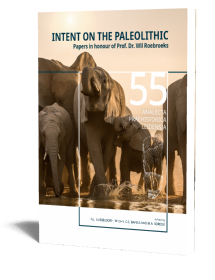Abstract:
This book offers the first in-depth analysis of French-Anglophone research conflicts in Palaeolithic archaeology. By carefully examining a range of case studies and discursive contexts, the author shows that French and Anglophone approaches to the lithic evidence are anchored in opposing cognitive frameworks.
The mainstays of this division are outlined by drawing on the work of American philosopher Stephen C. Pepper, who captured the totality of credible Western thought in terms of four equitable world hypotheses. The book demonstrates that French lithic research gravitates towards contextualistic and organicistic modes of inquiry, whereas Anglophone approaches tend to rely on formistic and mechanistic modes of inquiry. The implications of this difficult condition for mutual understanding and critical practice are explored and it is argued that the French-Anglophone divide can only be satisfactorily navigated if practitioners endorse scientific pluralism, cultivate a more reflexive stance towards their own work, and begin to seriously take into consideration the strengths and shortcomings of different cognitive frameworks.
While the book seeks to clarify the methodological, theoretical and epistemological landscape of Palaeolithic stone artefact analysis and will therefore be of a key source for lithic specialists, it may also be of interest for a broader readership from Science and Technology Studies (STS), the history and philosophy of science, and nascent interdisciplinary science studies.
Contents
Acknowledgements
Author’s preface
Foreword by Raymond Corbey
Terminology, definitions and key concepts
Introduction
Chapter 1: The clash between French and Anglophone lithic research in Palaeolithic archaeology
1.1 The problem of lithic knowledge
1.2 The French-Anglophone divide
1.3 Critical practice beyond partisanship
Chapter 2: Pepper’s four world hypotheses as a new framework to examine the French-Anglophone divide
2.1 Why Pepper?
2.2 The landscape of Western thought
2.3 Root metaphor theory
2.4 Four distinct ways of marshalling evidence
2.5 Affinities and trade-offs between world hypotheses
2.6 The problem of knowledge corroboration
2.7 Finding utility in world hypotheses
Chapter 3: The French-Anglophone divide and the analytic-synthetic polarity of world theories
3.1 Pepper applied: a new hypothesis
3.2 The structure of the French-Anglophone divide reconsidered
Chapter 4: Analyticity unpacked – Anglophone approaches between formism and mechanism
4.1 Tropes of formism in Anglophone practice
4.2 Tropes of mechanism in Anglophone practice
Chapter 5: Syntheticity unpacked – French approaches between contextualism and organicism
5.1 Tropes of contextualism in French practice
5.2 Tropes of organicism in French practice
Chapter 6: Conceptual equivocality, pluralism and critical practice at the French-Anglophone boundary
6.1 A review of main findings and arguments
6.2 Towards a new understanding of time-honoured problems
6.3 The epistemological status of the divide
6.4 A call for pluralism in lithic research
6.5 The art of criticism
6.6 Future perspectives: exploiting the world hypotheses interface
Epilogue
FAQ
Bibliography
Electronic Appendix


Dr.
Shumon T. Hussain
Shumon T. Hussain is a transdisciplinary archaeologist with a research focus on Late Pleistocene and Early Holocene foragers, especially their stone artefact technologies and animal relationships. He is broadly interested in theoretical innovation and synthesis beyond archaeology as a disciplinary specialism, to better integrate data and perspectives across the humanities and sciences vis-à-vis question of the human deep past, and the epistemology and practice of science. He is currently based at the University of Cologne, Germany, where he is a senior researcher and lecturer at the newly established research hub MESH – Multidisciplinary Environmental Studies in the Humanities.
read more












